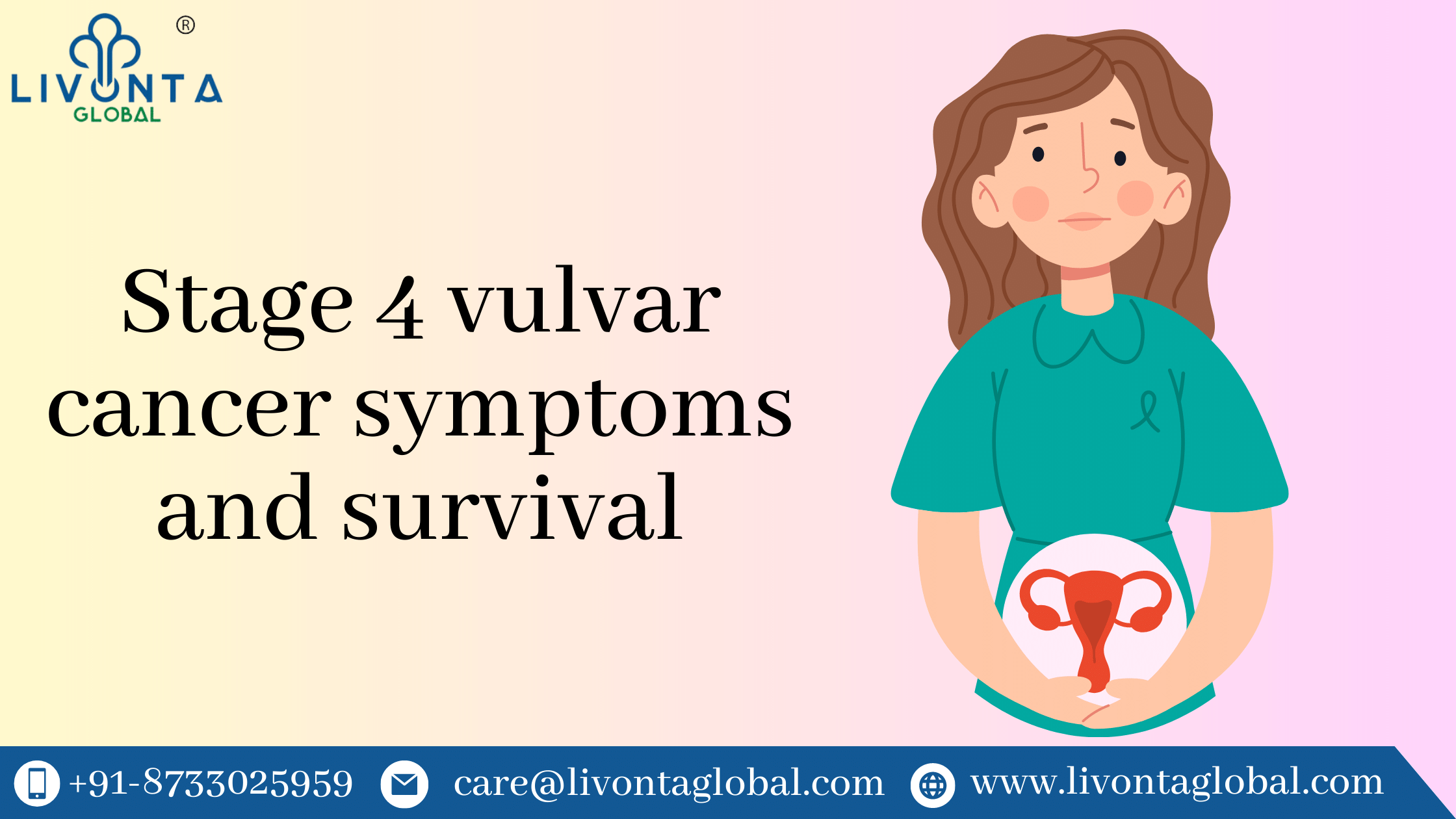
Stage 4 Vulvar Cancer Symptoms and Survival
One of the most rare forms of cancer is vulvar cancer. It has a largely positive prognosis when it is in its early stages. Stage 4 vulvar cancer, however, has moved outside of the vulva, making treatment more challenging.
Generally speaking, vulvar cancer has a 5-year relative survival rate of around 71%. Accordingly, those who have this cancer have a 71% higher chance of living five years following diagnosis than those who do not have vulvar cancer.
The experts in cancer hospitals in India explain that Stage 4 has a reduced survival rate. Stage 4A is that cancer has spread to close body parts like the urethra, whereas stage 4B denotes that it has moved to distant body parts. Stage 4B has a lower survival rate than stage 4A.
What is stage 4 vulvar cancer?
Cancer that began in the vulva but has migrated to other regions is referred to as stage 4 vulvar cancer. The most advanced stage of cancer is stage 4. The best cancer treatment hospitals in India offer treatment, but it is always good to have yourself checked from time to time in case of any discomfort. Stage 4 vulvar carcinoma has two substages. The urethra or the perineum, which is the region between the vulva and the anus, are examples of neighbouring tissues to which cancer has migrated in stage 4A. Stage 4B refers to the cancer’s metastasis to distant body organs like the lungs. Squamous cell carcinoma, a kind of skin cancer, is the most prevalent type of cancer that may affect the vulva. Melanoma and other skin cancers can develop in the vulva as well.
Survival and expectancy
The fourth stage of vulvar carcinoma is treatable. After treatment, some patients may enter remission, which means their cancer is completely under control. While it can lengthen a person’s life, this does not guarantee that the cancer won’t come back. Others may not respond to treatment or experience remission only temporarily.
With stage 4 vulvar cancer, there is no typical or average life expectancy. Instead, a 5-year relative survival rate is used by clinicians to gauge cancer survival. In comparison to the general population, this rate shows the possibility that a person with a cancer diagnosis will still be alive after five years. Age, overall health treatment, and responsiveness are factors that affect the prognosis.
The Surveillance, Epidemiology and End Results (SEER) Programme found that from 2008 to 2014, the 5-year relative survival rate for vulvar cancer with regional metastasis was 53%.
When vulvar cancer has not spread to the lymph nodes, survival rates are greater. The prognosis is also impacted by the sort of cancer a person has. For instance:
- Melanoma: When it is further advanced, this form of cancer has a poorer overall survival rate than other vulvar cancers.
- Sarcoma: Though it is uncommon, it is possible for this type of cancer to affect the vulva. The epithelioid sarcoma subtype, albeit it seldom invades lymph nodes and grows slowly, has the lowest survival percentage of all vulvar malignancies.
- Basal cell carcinoma: This is quite likely to come back. Although there is a chance of recurrence, it is uncommon, and the prognosis is frequently positive.
- Cancer linked to the human papillomavirus (HPV): HPV is a sexually transmitted infection that increases the risk of certain malignancies. Treatment for vulvar cancer linked to HPV can be effective.
Symptoms of stage 4 vulvar cancer
- Wounds on the vulva that do not heal or that produce sores that return
- Any unnatural growths on the vulva of any colour
- A rash or warts on the vulva skin alterations in the vulva’s skin pain, bleeding, or itching that does not go away or that recurs in the vulva
- In situations of vaginal cancer, people may also experience these symptoms inside the vagina.
Vulvar cancer symptoms sometimes resemble those of other illnesses. For a diagnosis, it’s crucial to see a doctor.
Cancer TreatmentTags: Vulvar cancer

